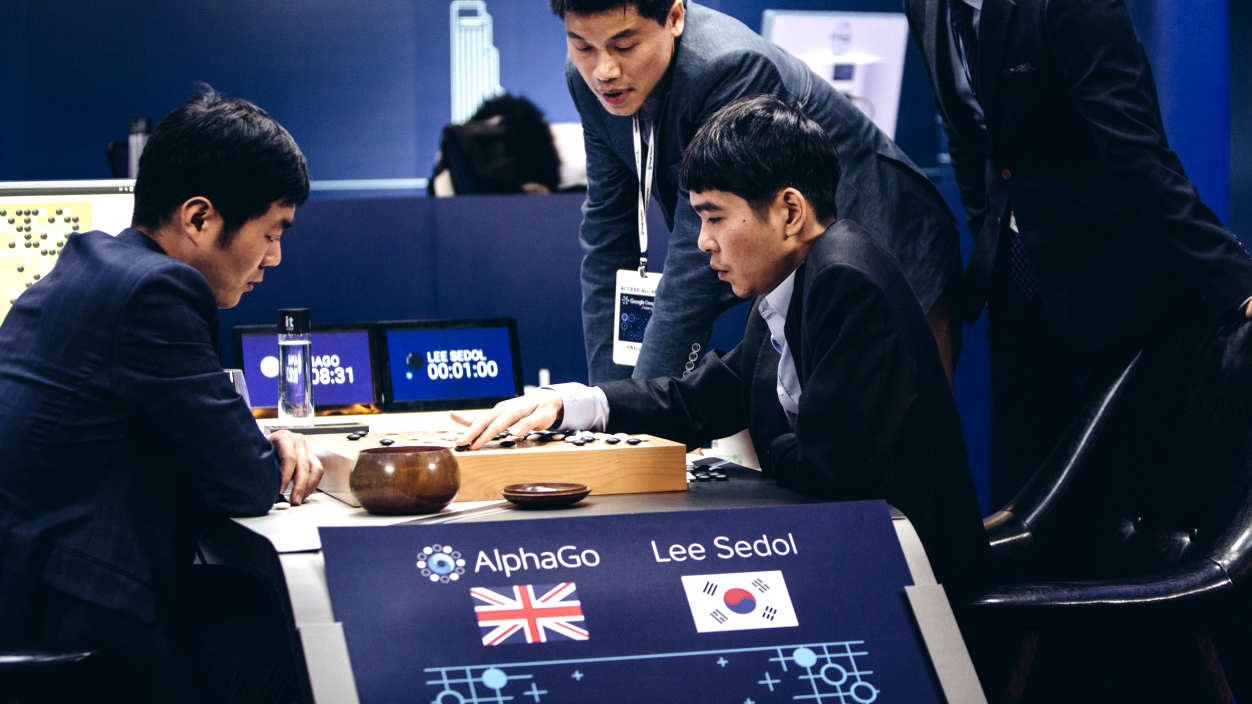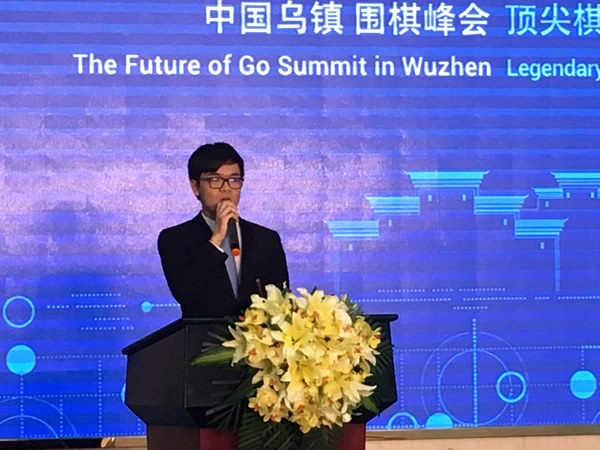The “Future of Go Summit” will be held in the eastern Chinese city of Wuzhen in Zhejiang Province, where we will see another man versus machine contest set to take place on May 23-27. The summit will feature the world's top Go player, China's Ke Jie, face off against Google's artificial intelligence program, AlphaGo.

Lee Sedol(R) lost 4-1 to AlphaGo in March 2016. /CFP Photo
It will be the second meeting between a top professional player and an artificial intelligence program. Previously, the program defeated South Korean Go master Lee Sedol in a 4-1 victory last year. In the coming May showdown at the popular tourist destination in Zhejiang, home favorite Ke will face a stronger AlphaGo than what was seen a year ago, because this time, the program boasts a deep learning capability to develop for itself and discover new strategies by playing games on its own and adjusting neural networks based on a trial-and-error process known as reinforcement learning.
According to a previous announcement from Google's Deepmind machine-learning team, the secret player on the two Chinese online board-game platforms competing against several of the world's best Go players was, in fact, AlphaGo. As of January 4, when the test was completed, AlphaGo compiled 60 wins and no losses. Ke Jie, along with Chinese Go legend Nie Weiping, was among those on the wrong end of the result.

Ke Jie in the "Future of Go Summit" press conference in Wuzhen, Zhejiang Province /Chinadaily Photo
The 19-year-old Ke is the youngest champion in the history of the game and has so far gone on to win three world titles within the space of one year between 2015 and 2016. He has now won four world titles and hopes to better the board game-playing program in a best-of-three contest. As far as Ke is concerned, the contest will be extremely difficult, but it is one he believes he can win. “AlphaGo is very good. If we are saying we are all knights, AlphaGo is definitely the best knight, so honestly speaking, I am a little nervous. I've never expected to lose in my career, but I’ll do whatever I can to win.”
Alongside Ke's individual battle, two other Chinese players, Lian Xiao and Gu Li, will take on each other assisted by the AlphaGo program in a man versus machine paired battle. The event will conclude with five other Chinese players making up a team to face a computer.
Go, known as Weiqi in China and Baduk in South Korea, originated from China thousands of years ago. It involves two players who take turns putting white and black stones on a grid of 19-by-19 lines. The goal is to gain more territory on the grid while removing the opponent’s by surrounding the pieces.
1085km
Related story:










